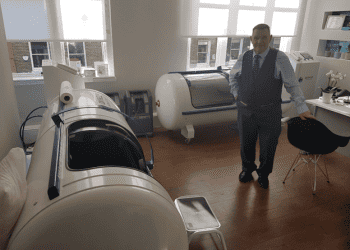In the rapidly evolving landscape of healthcare, technology plays a pivotal role in transforming the way medical services are delivered and accessed. Healthcare web application development stands at the forefront of this technological revolution, offering innovative solutions to enhance patient care, streamline operations, and improve overall healthcare outcomes. In this article, we aim to provide a comprehensive overview of healthcare web application development, from its definition to the intricacies of the development process and key considerations when choosing a development partner.
What Is Healthcare Web Development?
Healthcare web development involves the creation of web applications tailored specifically for the healthcare industry. These applications are designed to address the unique challenges and requirements of healthcare providers, administrators, and patients. From electronic health record (EHR) systems to telemedicine platforms and health monitoring tools, healthcare web applications span a wide range of functionalities aimed at improving efficiency, accessibility, and the quality of healthcare services.
How is Web Development for Healthcare Different from General Web Development?
While the fundamental principles of web development apply across various industries, healthcare web development comes with its own set of challenges and considerations. The sensitivity of healthcare data, compliance with regulatory standards such as HIPAA (Health Insurance Portability and Accountability Act) or FHIR (Fast Healthcare Interoperability Resources), and the need for seamless integration with existing healthcare systems distinguish it from general web development. Security, privacy, and interoperability become critical factors that developers must address to ensure the success of healthcare web applications.
Steps of Healthcare Web Development
1. Requirement Analysis:
- Collaborate with stakeholders to understand the specific needs and goals of the healthcare application. Before embarking on the development journey, it is crucial to engage with all relevant stakeholders, including healthcare professionals, administrators, and end-users. This involves discussions on workflow processes, data management, regulatory compliance, and user expectations.
- Identify key functionalities, user roles, and integration requirements. Through a comprehensive requirement analysis, the development team identifies the core functionalities the healthcare web application must offer. This may include features like electronic health record (EHR) management, appointment scheduling, telemedicine capabilities, and more. Defining user roles ensures that the application provides tailored experiences for different user categories, such as physicians, patients, and administrative staff. Integration requirements involve determining how the new application will interact with existing healthcare systems and technologies.
2. Design and Planning:
- Create a user-centric design that prioritizes ease of use and accessibility. User experience (UX) is a pivotal factor in healthcare web development. The design phase focuses on creating an interface that is intuitive, easy to navigate, and aligns with the workflow of healthcare professionals. Accessibility considerations are vital to accommodate users with diverse needs and abilities.
- The architectural planning phase involves making critical decisions about the underlying structure of the healthcare web application. Scalability is key to accommodate potential growth in users and data. Security measures must be embedded at every level to safeguard sensitive patient information, ensuring compliance with regulations such as HIPAA. The architecture should also facilitate seamless integration with other healthcare systems, promoting interoperability.
3. Development:
- Utilize appropriate technologies to build robust and scalable web applications. During the development phase, the chosen technologies and frameworks come into play. The development team leverages suitable tools to bring the planned architecture and design to life. This involves coding the various features and functionalities outlined in the requirement analysis phase. Attention to detail and adherence to coding best practices contribute to the development of a robust and scalable healthcare web application.
- Implement features such as patient portals, EHR systems, appointment scheduling, and telemedicine capabilities. The implementation of features is a critical aspect of healthcare web development. Each feature is implemented with a focus on fulfilling specific healthcare needs.
4. Testing:
- Conduct thorough testing to ensure the reliability, security, and performance of the healthcare web application. Reliability testing ensures the application functions as intended without errors or crashes. Security testing assesses the robustness of security measures, identifying and addressing vulnerabilities. Performance testing examines the responsiveness and scalability of the application under different conditions.
- Testing often uncovers issues and areas for improvement. The development team addresses identified issues promptly, making necessary adjustments to enhance the application’s performance and user experience. Optimization may involve refining code, improving load times, and resolving any usability concerns. The goal is to deliver a healthcare web application that operates seamlessly and provides a positive user experience.
5. Deployment:
- Deploy the healthcare web application in a secure and scalable environment. The deployment phase marks the transition from development to live operation. The healthcare web application is deployed in a secure and scalable environment, often involving cloud infrastructure. Deployment includes the configuration of servers, databases, and other components to ensure the application runs smoothly. Security measures established during the planning phase are reinforced to protect sensitive healthcare data.
- Monitor and optimize performance during the initial rollout. Once deployed, the development team closely monitors the performance of the healthcare web application during the initial rollout. This monitoring helps identify and address any unforeseen issues that may arise in a live environment. Optimization efforts continue as needed to ensure the application operates efficiently and provides a positive experience for users.
6. Maintenance and Updates:
- Provide ongoing support, maintenance, and regular updates to address emerging needs and maintain compliance with evolving regulations. The lifecycle of a healthcare web application extends beyond its initial deployment. Ongoing support and maintenance are essential to address emerging needs, fix any issues that may arise, and ensure the continued functionality of the application.
- Regular updates are also crucial to adapt to evolving healthcare regulations, incorporate new features, and enhance overall performance. A commitment to post-development support ensures the long-term success of the healthcare web application in meeting the dynamic needs of the healthcare industry.
How to Choose a Healthcare App Development Company in the US?
Selecting the right healthcare app development company is crucial for the success of your project. Consider the following factors when making your decision:
1. Experience and Expertise
Selecting a healthcare app development company with a robust track record in the industry is paramount. Look for a company that not only claims experience but can provide evidence of successful healthcare web development projects. Scrutinize their portfolio to assess the complexity and scale of projects they’ve handled. A company with a proven track record is more likely to navigate the intricacies of healthcare development, addressing specific challenges and delivering high-quality solutions. GeekyAnts Web and Mobile App Development studio, with a proven track record of 700+ successful projects, excels in healthcare solutions. Their GeekCare, a telemedicine app using React Native, Next.js, Node.js, and PostgreSQL, offers customizable features for appointment scheduling, video consultations, and prescription management. With a robust support system and a top-notch tech stack, GeekCare ensures optimal performance and user satisfaction.
2. Compliance and Security
Healthcare data is sensitive, and compliance with regulations such as the Health Insurance Portability and Accountability Act (HIPAA) is non-negotiable. Ensure that the healthcare app development company has a thorough understanding of these regulations. Request information on their approach to HIPAA compliance and how they integrate security measures into their development process.
Prioritizing security is crucial to protect sensitive patient data from potential breaches. A reliable healthcare app development company should have stringent security protocols in place, including data encryption, access controls, and regular security audits.
GeekyAnts has a thorough understanding of such regulations, having worked on developing apps requiring compliance with HIPAA, FHIR, Accessibility Standards, and more.
3. Technology Stack
Assessing the technology stack of a healthcare app development company is crucial to ensuring that the chosen technologies align with industry standards and provide the required scalability. A modern and adaptable technology stack indicates that the company stays abreast of technological advancements and is equipped to deliver cutting-edge solutions. Make sure the company has proven experience in selecting technologies that support interoperability and seamless integration with existing healthcare systems, often a critical requirement for healthcare web applications.
5. Collaborative Approach
Choosing a development partner that values collaboration is essential for the success of your healthcare web application. The healthcare industry often involves multiple stakeholders with diverse needs and perspectives. A company that embraces a collaborative approach ensures that the development process considers input from all relevant parties, leading to a more comprehensive and user-friendly solution.
With proper communication channels, project management methodologies, and dedicated Business Analysis (BA) and Account Management (AM) teams, GeekyAnts involves clients and end-users in decision-making processes. This collaborative approach fosters transparency and alignment throughout the development lifecycle.
6. Post-Development Support
The journey doesn’t end with the deployment of the healthcare web application. Post-development support is critical for addressing issues, implementing updates, and ensuring the ongoing performance and security of the application. Verify that the healthcare app development company provides comprehensive post-development support, including regular maintenance, timely updates, and a responsive support system.
Understanding the company’s commitment to long-term support is essential to avoid potential challenges in the future and to ensure the sustained success of your healthcare web application.
Top Healthcare App Development Companies in the US
1. GeekyAnts
Distinguished as a prominent web and mobile app design and development studio, GeekyAnts has accumulated an impressive 17+ years of experience in the industry. With a remarkable track record of over 700 successful projects, the company has solidified its expertise in delivering customizable healthcare solutions, leveraging cutting-edge technologies to address the evolving needs of the sector.
One of their flagship offerings, the GeekCare telemedicine app, is designed to be a versatile solution accommodating a spectrum of healthcare requirements. This includes but is not limited to telemedicine, clinic management, learning management systems, hospital management systems, pharmaceutical e-commerce, and patient portals. GeekyAnts’ global presence across San Francisco, Bengaluru, and London further attests to its commitment to providing innovative and tailored digital solutions on a worldwide scale.
2. The Gnar Company
Based in Boston, Massachusetts, The Gnar Company stands out as a premier software development firm, offering a Bug-Free Warranty. With a seasoned US-based team boasting decades of experience in enterprise-level software engineering and product development, the company is known for delivering high-quality code swiftly.
Their expertise is particularly pronounced in healthcare app development, where they have successfully designed and constructed mobile applications for surgeons and undertaken extensive reconstruction projects for first responders, showcasing a versatile and impactful approach to healthcare solutions.
3. Elevato
With a substantial 36 years of industry experience and an extensive portfolio featuring 542 active clients, Elevato is a standout presence in Scottsdale, Arizona. Leveraging their rich expertise, Elevato excels in crafting databases, applications, websites, and networks that not only prioritize user intuition but also guarantee robust performance. The company specializes in developing systems compliant with HIPAA regulations, ensuring the secure handling of sensitive health information.
Elevato’s impressive portfolio not only showcases their mastery in various technological domains but also highlights their proficiency in designing and developing interactive visualization tools. Notably, one of their significant achievements includes the creation of a groundbreaking tool for uncovering associations between diseases and potential drug targets, underlining Elevato’s commitment to innovative and impactful solutions.
4. Iron Forge Development
Founded in 2016, Iron Forge Development emerges as a prominent U.S.-based software commercialization firm situated in Palm Beach Gardens, Florida. Renowned for its adept management of the complete software life cycle, the company harnesses cutting-edge technologies, ensuring infinite scalability for its projects.
Iron Forge Development takes pride in an illustrious client portfolio, featuring industry giants like T-Mobile, Cricket Wireless, Delta Airlines, Hertz, and Trek. Demonstrating exceptional versatility, the firm extends its expertise across diverse sectors, with a notable specialization in crafting HIPAA-compliant medical products and medical hardware solutions, showcasing its commitment to delivering high-impact solutions across various industries.
5. Think Tree Studios
Distinguished as a frontrunner in the realm of innovative digital solutions, Think Tree Studios has established itself as a creative force in crafting sophisticated websites and mobile applications, seamlessly transforming conceptual ideas into elegantly designed and fully functional digital experiences.
Particularly noteworthy is their expertise in healthcare technology, exemplified by the development of a comprehensive mobile app for both iOS and Android platforms. This app seamlessly integrates Bluetooth connectivity to medical devices, incorporates micro social networking features, and is supported by a robust AWS infrastructure, showcasing the company’s commitment to cutting-edge solutions in the healthcare sector. Think Tree Studios boasts an impressive clientele, including notable names such as Healthio, Wicis Sports, Lumin Aid, and Sky Networks, underscoring the depth and success of their collaborative ventures across diverse industries.






